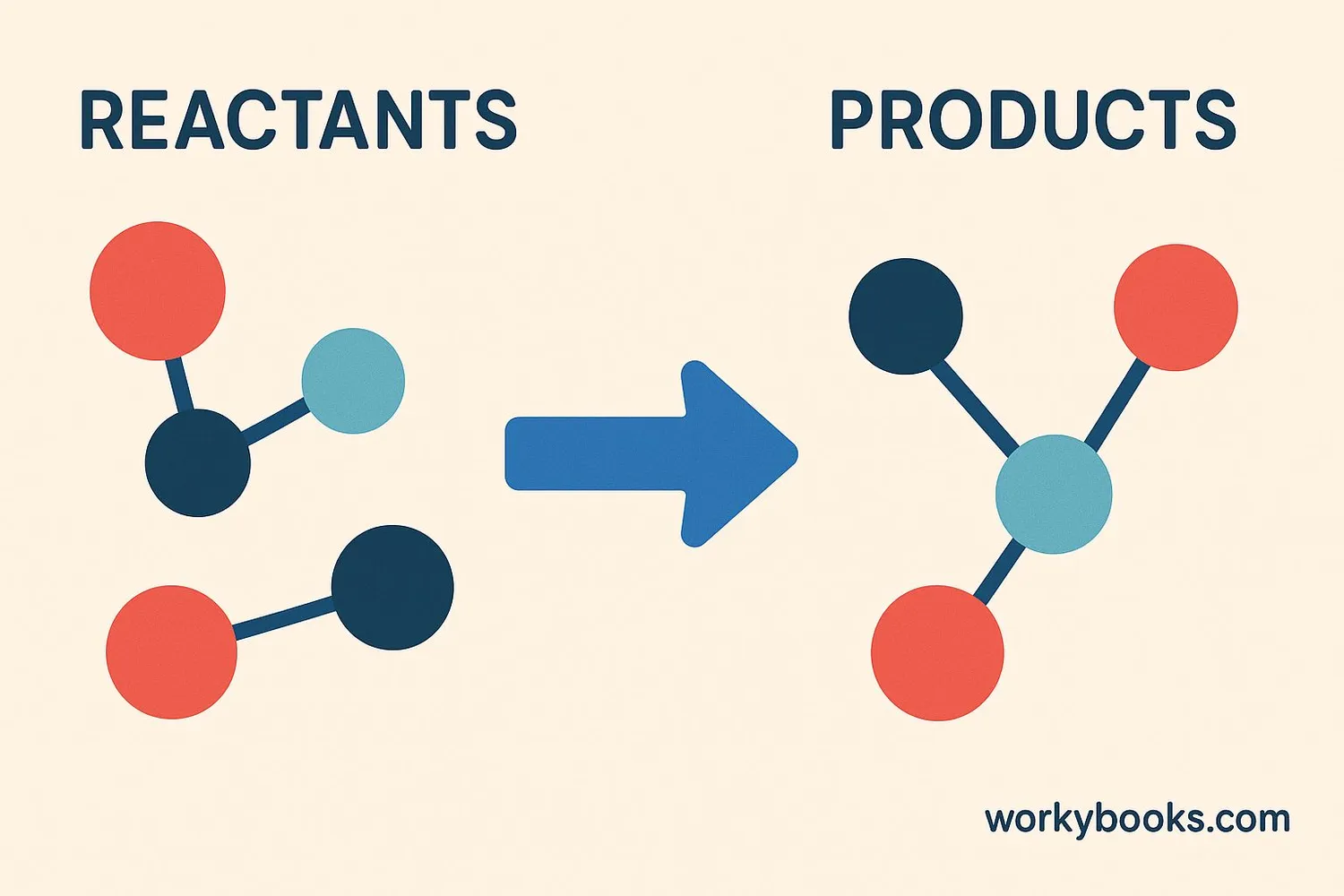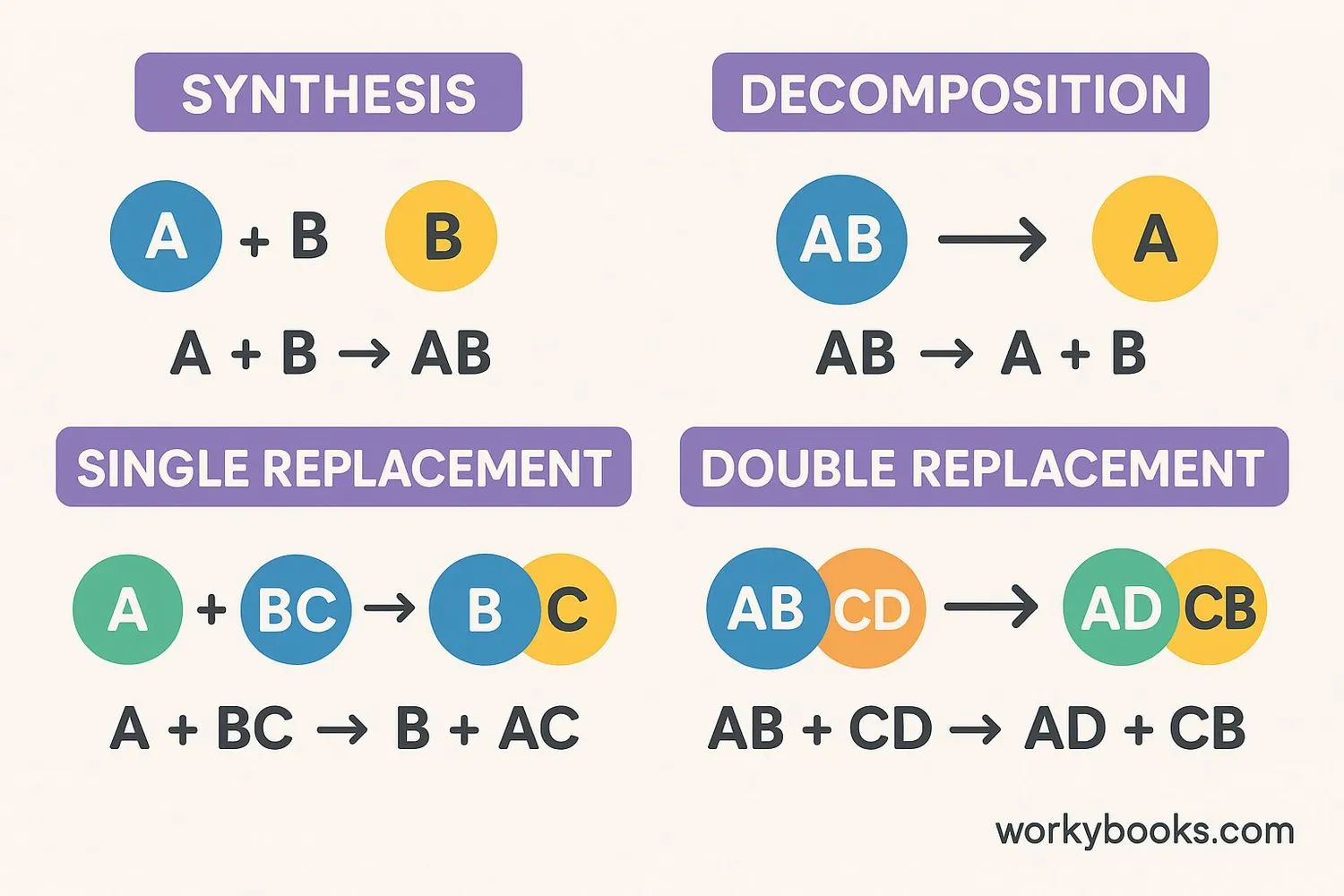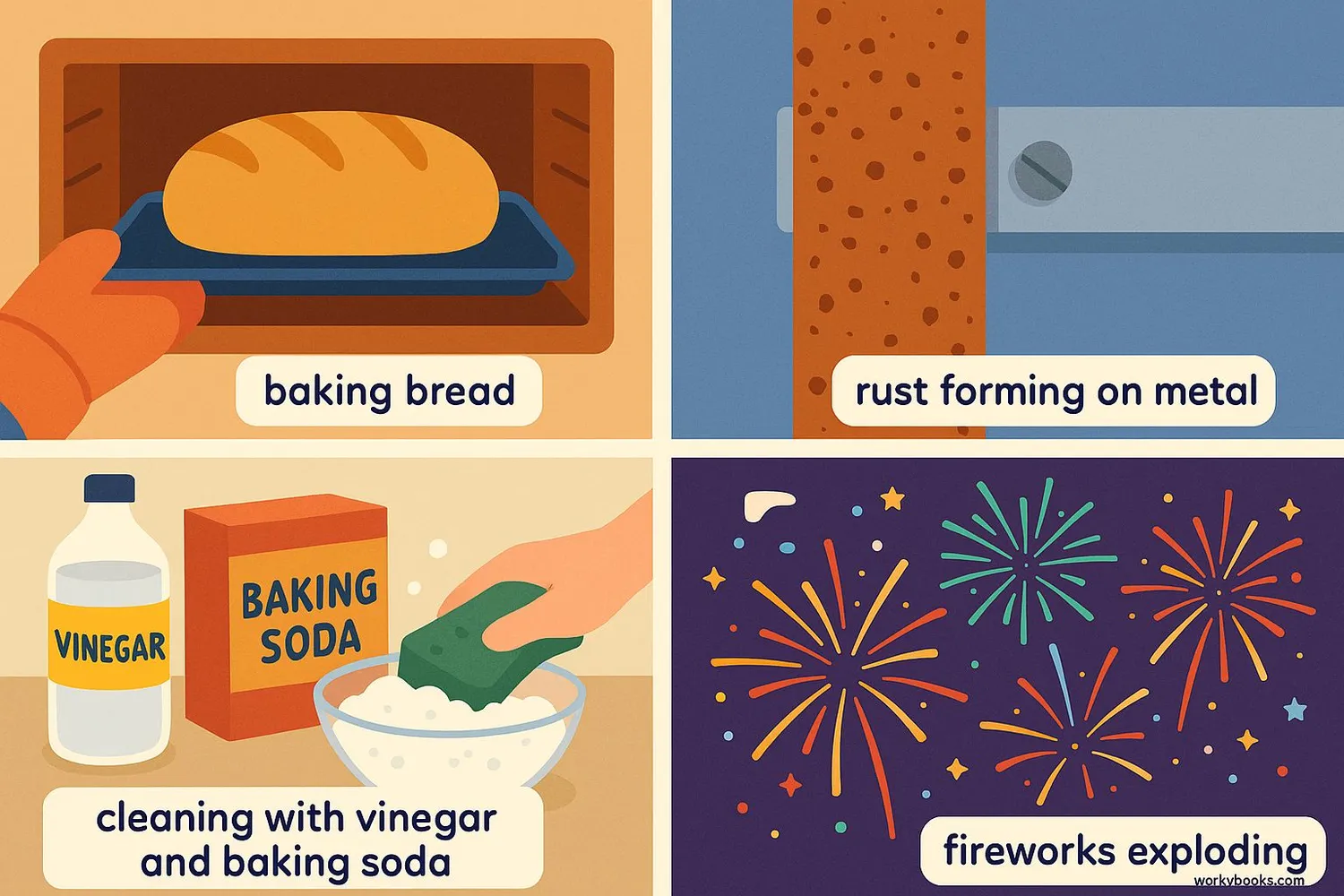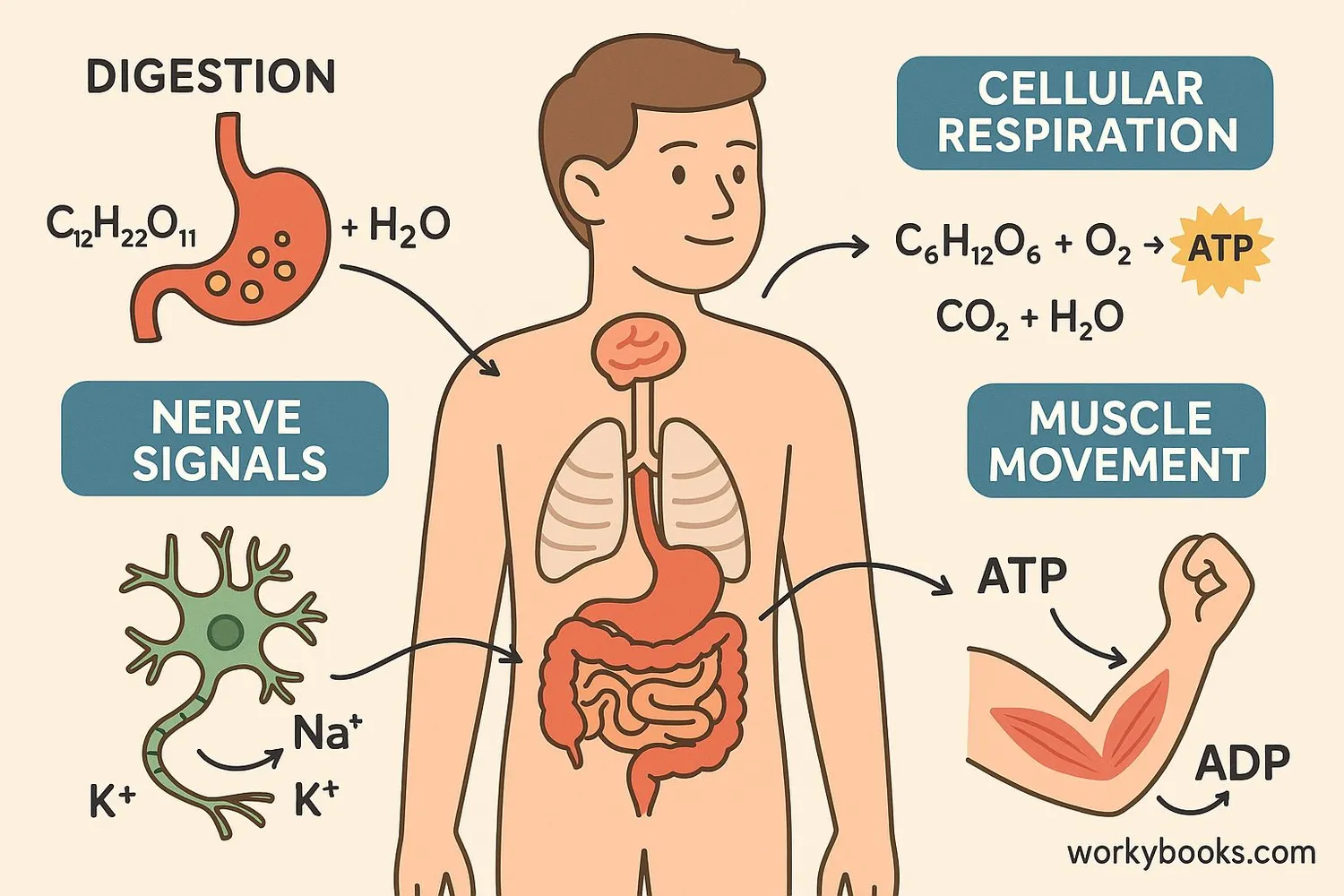Chemical Reactions - Definition, Examples, Quiz, FAQ, Trivia
Discover how substances transform into new materials with different properties!
What is a Chemical Reaction?

A chemical reaction is a process where substances transform into new materials with different properties. It's like magic that happens at the molecular level! During a chemical reaction:
• Atoms rearrange to form new substances
• Chemical bonds break and form
• Energy is either absorbed or released
• The original substances change completely
The special formula that represents a chemical reaction is called a chemical equation. For example, when iron rusts:
Key Fact!
In chemical reactions, no atoms are created or destroyed - they simply rearrange to form new substances! This is called the Law of Conservation of Mass.
Chemical Reaction vs Physical Change
It's important to know the difference between chemical reactions and physical changes:
Physical Change: No new substance is formed. Examples include ice melting, paper tearing, or water evaporating.
Chemical Reaction: New substances are formed with different properties. Examples include iron rusting, wood burning, or baking a cake.
Types of Chemical Reactions

Scientists classify chemical reactions into several main types:
Synthesis
Two or more substances combine to form a more complex product
A + B → AB
Decomposition
A compound breaks down into simpler substances
AB → A + B
Single Replacement
One element replaces another in a compound
A + BC → AC + B
Double Replacement
Elements in two compounds swap places
AB + CD → AD + CB
Combustion
A substance reacts with oxygen, releasing energy
CₓHᵧ + O₂ → CO₂ + H₂O
Reaction Rate Facts!
The speed of chemical reactions can be changed by temperature, concentration, surface area, and catalysts. For example, food spoils faster in warm temperatures!
Chemical Reactions in Everyday Life

Chemical reactions happen all around us every day! Here are some common examples:
Cooking & Baking
Heat causes chemical changes in food - bread baking, eggs frying, or meat grilling
Batteries
Chemical reactions produce electricity in batteries
Cleaning
Soaps and detergents cause chemical reactions that remove dirt
Fireworks
Explosive chemical reactions create colorful displays
Food Spoilage
Chemical reactions cause fruits to ripen and eventually rot
Is photosynthesis a chemical reaction? Yes! Photosynthesis is the amazing chemical reaction where plants use sunlight to convert carbon dioxide and water into glucose (food) and oxygen.
Chemical Reactions in Our Bodies

Our bodies are amazing chemical laboratories! Every second, billions of chemical reactions keep us alive and functioning:
Digestion
Enzymes break down food into nutrients through chemical reactions
Respiration
Cells convert glucose and oxygen into energy (ATP)
Brain Function
Chemical reactions transmit signals between nerve cells
Muscle Movement
Chemical reactions cause muscle fibers to contract
Healing
Chemical processes repair injuries and fight infections
Body Chemistry Facts!
Your body performs about 37 billion chemical reactions every second! That's more reactions per second than there are stars in our galaxy.
Chemical Reactions Quiz
Test your knowledge with this chemical reactions quiz! Answer all 5 questions to see how much you've learned.
Frequently Asked Questions
Here are answers to common questions about chemical reactions:
Chemical Reactions Trivia
Discover amazing facts about chemical reactions!
Firework Colors
The different colors in fireworks come from chemical reactions! Different metal salts produce different colors: strontium makes red, barium makes green, copper makes blue, and sodium makes yellow.
Ancient Chemistry
Humans have been using chemical reactions for thousands of years! Ancient Egyptians used chemical reactions to make cosmetics, while early metallurgists discovered how to extract metals from ores around 5000 BC.
Brain Chemistry
Thinking involves chemical reactions! When you learn something new, chemical reactions strengthen connections between brain cells. A single thought can involve millions of chemical reactions happening in milliseconds.
Space Reactions
Chemical reactions power space exploration! Rocket engines use chemical reactions to produce thrust. The Space Shuttle's main engines burned liquid hydrogen and oxygen, producing only water vapor as exhaust.





